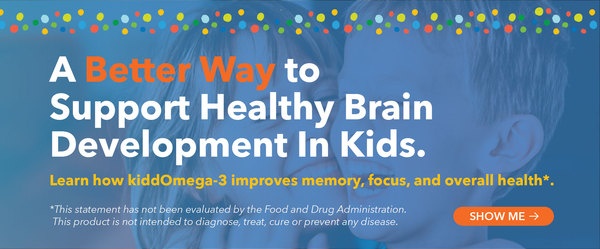
By Dr. Matt Hand
Today’s kids live differently. They eat more processed foods, engage in more activities involving electronics, and experience more rigorous academic standards and structures in school. This means there’s less free play outdoors, fewer fruits and vegetables in their diets, and more pressure to sit still for extended periods of time.
Managing behavioral challenges from a naturopathic perspective goes beyond adding supplements to your child’s diet. Supplements are a good place to start, but there are also several lifestyle adjustments that support wellness and brain focus.

Avoiding or Minimizing Traditional Therapies When Possible
Supplemental interventions may include the following:
- Zinc
- Magnesium
- Iron
- Fish oil
- Vitamin D
- Omega 3s
- Ginseng and Ginko combinations
- Valerian root and lemon balm combinations
An integrative health practitioner can help guide you toward the best combination of supplements and dosages for your child. Keep in mind that while these options may work for some children, others may need other approaches, especially if they’re failing in school. But even in these cases, it’s always important to reassess the situation. Bridge therapies can be useful in the short term.
Encourage Free Play Outdoors
Many schools no longer offer physical education on a regular basis, and lunch periods are sometimes as short as 15 to 20 minutes. High schoolers now do college-level work, middle schoolers do high-school level work, and elementary kids do some middle school-level work. Kids are expected to focus at a desk for longer periods of time than in the past. Even sports are more structured as leagues, club teams, or classes instead of free, casual play.
A child with behavioral challenges brain struggle against these constraints because their mind doesn’t want to sit still; it wants to go off and spontaneously do things. The author Richard Louv argues that loss of time playing in the woods and outdoors in the environment, coupled with an increase in structure learning time, has led to increased incidences of kids with behavioral challenges. Parents of these kids can help by scheduling regular, unstructured outdoor play. Stress-reducing exercises that involve repeated movement, such as yoga, walking, and jumping on a trampoline are great for kids as well. Even a ten-minute walk around the block can help settle the brain and promote focus.
Minimize Electronics
This is one area where most authorities agree: electronics make things worse. Multiple studies show neuro-psychiatric issues are exacerbated by the use of electronics. The effect electronics have on the brain is incredible.
To curb the effect electronics have on your child, cut back on the amount of daily screen time allowed. This includes video games, television, and using phones to chat with friends or engage on social media.
Address Sleep Issues
Sleeplessness can be common among kids with behavioral challenges. When your child’s sleep patterns are off, their circadian rhythm is off. They’ll wake later in the day and feel more fatigued during daytime hours. Lack of sleep can affect not only their performance in school, but it can also impact other body systems over time because good sleep is critical to most of the body’s functions.
To help encourage healthy sleep patterns, ensure your child gets daily physical exercise. You can also try melatonin dosed for children. It occurs naturally in the body and helps encourage sleep during evening hours.
Change Diet
There are a few dietary approaches when it comes to managing neurocognitive health. One can certainly eliminate foods that some believe trigger the conditions, including gluten and dairy, though there isn’t substantial data that says this works.
It’s becoming clearer that an ideal diet consists of more fruits, vegetables, phytonutrients, and foods that contain high-quality fats and Omega 3s (like olive oil and fish), and fewer foods that contain starches and sugars. This kind of diet is better for regulating the inflammatory response, boosting brain function, and overall bodily wellness.*
To encourage kids to eat healthier, you can help shift their perspective by looking at food as creative, exciting adventure that will ultimately help them feel better. If they know that good foods help them focus and feel better, they may be more inclined to make better food choices.
Behavioral challenges seem far more common today than they were 20 and 30 years ago. Integrative health offers a lot of natural interventions for kids who may struggle in this way. Along with supplements, exercise, sleep, reduced exposure to electronics, and a good diet can help minimize the effects that kids experience. A functional medicine practitioner can help you develop a holistic plan for your child.
*These statements have not been evaluated by the Food and Drug Administration. This product is not intended to diagnose, treat, cure or prevent any disease.

Statistical Reference: Data and Statistics About ADHD | CDC
https://www.cdc.gov/ncbddd/adhd/data.html











.jpg)
.jpg)





